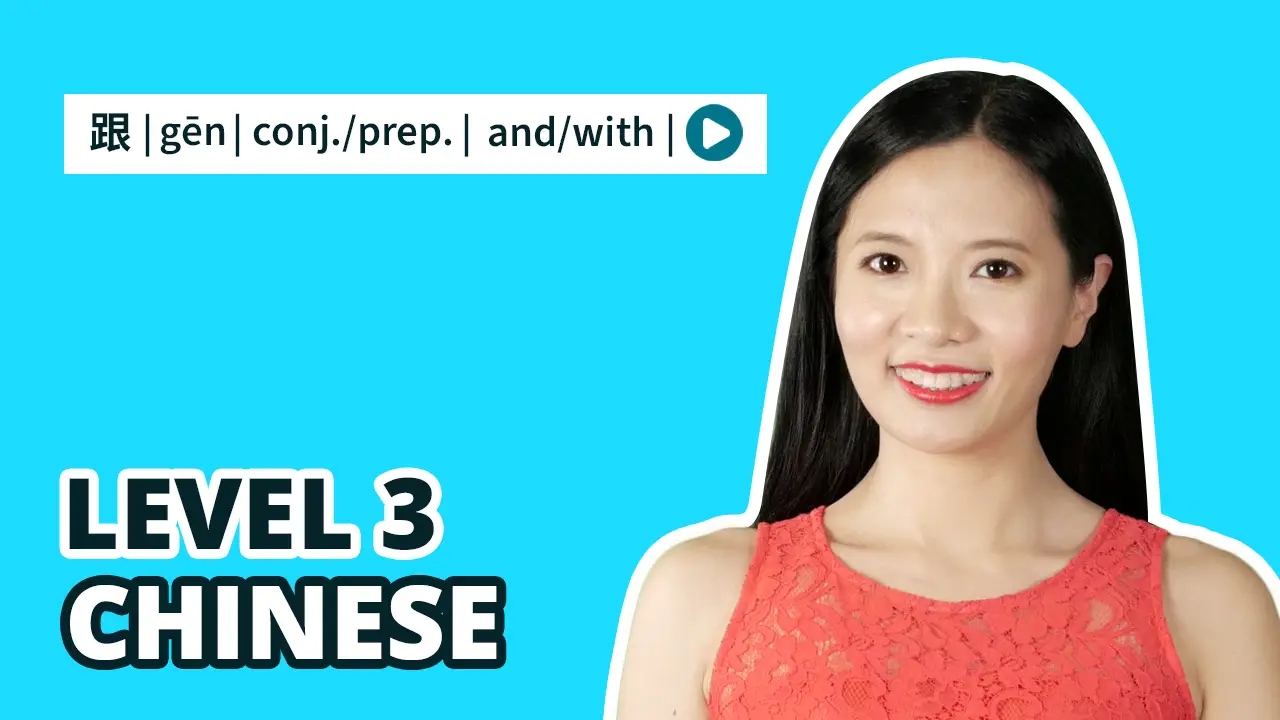Level 3 Lesson 5.1 – 种 行李 箱 行李箱 护照 清楚 结果 睡着
HSK 3+ VOCABULARY: 种 行李 箱 行李箱 护照 清楚 结果 睡着
In this video lesson we'll learn the vocabulary in Lesson 5 and practice them with a lot of example sentences. For new Chinese characters, we'll learn how to write them and know about their structures and origins in the attached writing sheet.
- VOCABULARY: 种 行李 箱 行李箱 护照 清楚 结果 睡着
- CHINESE CHARACTERS: 种 李 箱 照 清 楚 着
- COMMON CHINESE FAMILY NAMES: 李(lǐ) 楚(chǔ)
VOCABULARY LIST
VOCABULARY USAGE
1. 种 zhǒng · HSK 3
m.w. 量词 liàngcí ▸ kind; type
- yì zhǒng
一种
one type/kind (of) - zhè zhǒng
这种
this type/kind (of) - nà zhǒng
那种
that type/kind (of)
- Nǐ xǐhuan dài nǎ zhǒng màozi?
你喜欢戴哪种帽子?
Which kind (of) hat/beanie do you like wearing? - Zhè tiáo qúnzi yǒu jǐ zhǒng yánsè? Gěi wǒ huàn yì zhǒng ba!
这条裙子有几种颜色?给我换一种吧!
How many kinds of colors does this “tiao” dress/skirt have? Change one kind for me! - Zhōngguó yǒu tèbié duō zhǒng chá, wǒ hē guo wǔ liù zhǒng.
中国有特别多种茶,我喝过五六种。
There are many types of tea in China, I have drunk five or six types.
2. 行李 xíngli · HSK 3
n. 名词 míngcí ▸ luggage; baggage
3. 箱 xiāng · HSK 3
n. 名词 míngcí ▸ box; case
m.w. 量词 liàngcí ▸ box; case
4. 行李箱 xínglixiāng · HSK 3
n. 名词 míngcí ▸ suitcase; luggage case
- yí jiàn xíngli
一件行李
one “jian” of luggage - yí ge xínglixiāng
一个行李箱
one “ge” of suitcase
- ná xíngli
拿行李
to take/get/grab luggage - ná xínglixiāng
拿行李箱
to take/get/grab suitcase
- Wǒ zài jīchǎng děng zhe ná xíngli.
我在机场等着拿行李。
I am at the airport waiting to get the luggage. - Zhè ge xínglixiāng yǒu yì mǐ cháng.
这个行李箱有一米长。
This suitcase is one meter long.
5. 清楚 qīngchu · HSK 3
(1) adj. 形容词 xíngróngcí ▸ clear
- Duìbuqǐ, zhèlǐ wǒ xiě de bù qīngchu, wǒ zài xiě yíxià.
对不起,这里我写得不清楚,我再写一下。
Sorry, I did not write clearly here, let me write again. - Zhè ge wèntí Lǎo Lǐ yǐjīng shuō de hěn qīngchu le.
这个问题老李已经说得很清楚了。
Old Li has already explained this issue very clearly. - Xiànzài shìqing yǐjīng fēicháng qīngchu le, qián shì tā ná de.
现在事情已经非常清楚了,钱是他拿的。
Now things are very clear, it was him who took the money.
(2) v. 动词 dòngcí ▸ to know clearly; to be clear about
- Wǒ zhēn bù qīngchu tā wèishénme ’ài mǎi zhè zhǒng dōngxi.
我真不清楚他为什么爱买这种东西。
I really do not know why he loves buying this kind of stuff. - Zhè dào tí de yìsi dàjiā dōu bù qīngchu.
这道题的意思大家都不清楚。
No one is clear about the meaning of this test question.
- Nà jiàn shì nǐ qīng bu qīngchu?
那件事你清不清楚?
Are you clear about that matter or not? - Nà jiàn shì nǐ qīngchu bu qīngchu?
那件事你清楚不清楚?
Are you clear about that issue or not? - Nà jiàn shì nǐ qīngchu ma?
那件事你清楚吗?
Are you clear about that issue?
6. 结果 jiěguǒ · HSK 3
n. 名词 míngcí▸ result; consequence; outcome
- yí ge jiéguǒ
一个结果
one “ge” result/consequence/outcome - zhè zhǒng jiéguǒ
这种结果
this type of result/consequence/outcome - nà zhǒng jiéguǒ
那种结果
that type of result/consequence/outcome
- Tā shì jié le hūn de, nǐ gēn tā zài yìqǐ bú huì yǒu hǎo jiéguǒ.
他是结了婚的,你跟他在一起不会有好结果。
He is married, being with him will not have a good ending. - Měitiān liànxí xiězì de jiéguǒ shì, wǒ de zì xiě de yuèláiyuè hǎo le.
每天练习写字的结果是,我的字写得越来越好了。
The result of practicing writing every day is that my characters are written better and better. - Zhè ge jiéguǒ kěyǐ shì kěyǐ, dàn bú néng shuō tèbié hǎo.
这个结果可以是可以,但不能说特别好。
This result is okay, but we cannot say it is really good.
7. 睡着 shuìzháo · HSK 3
v. phrase 动词短语 dòngcí duǎnyǔ ▸ to sleep (with the result of) falling asleep
- Háizimen dōu shuìzháo le ma?
孩子们都睡着了吗?
Have the children all fallen asleep already? - Zuótiān wǎnshang wǒ hē le tèbié duō kāfēi, suǒyǐ méi shuìzháo.
昨天晚上我喝了特别多咖啡,所以没睡着。
Last night I drank a lot of coffee, so I did not fall asleep. - Nàbiān nà ge shuìzháo le de tóngxué shì shéi?
那边那个睡着了的同学是谁?
Who is that classmate over there who fell asleep?
